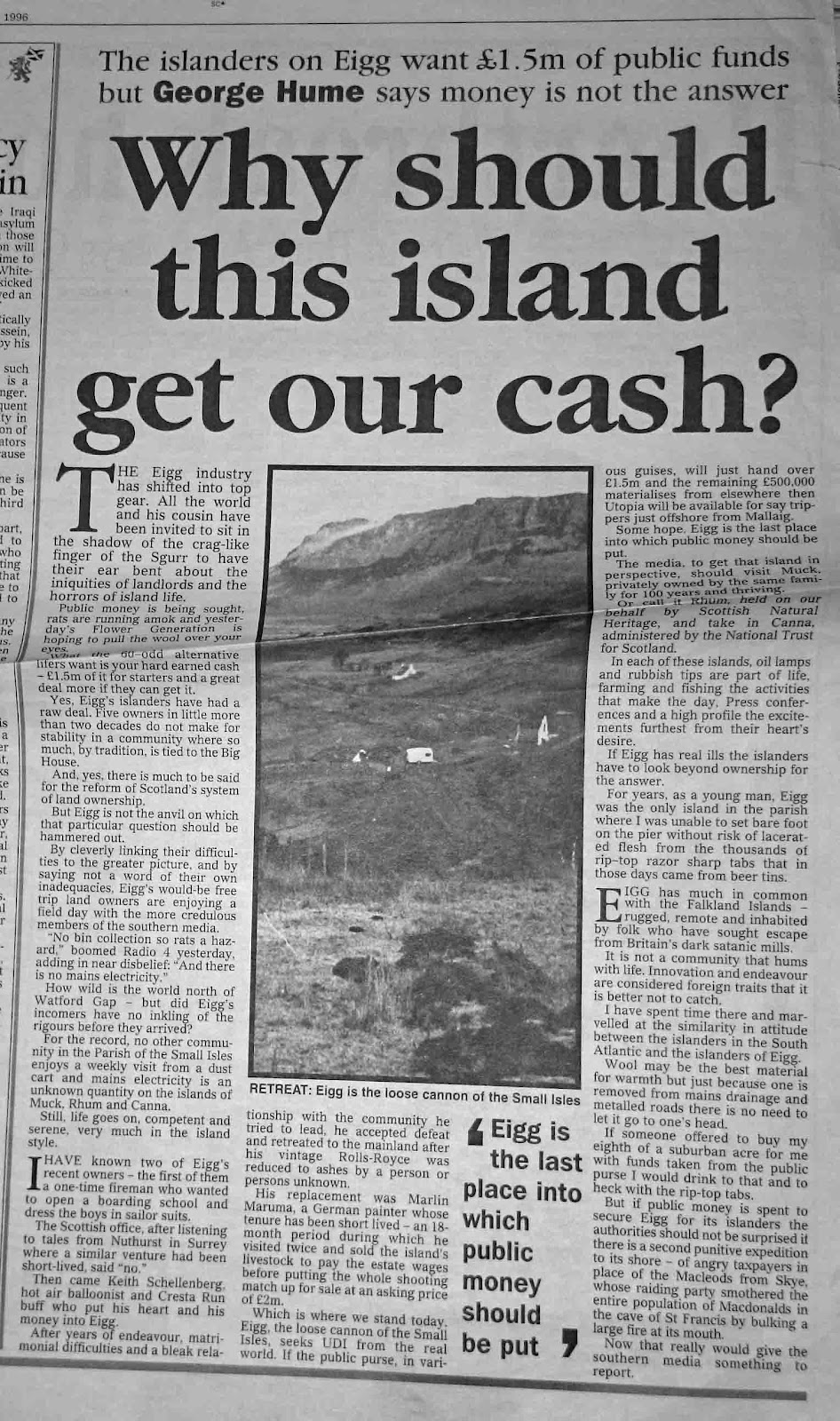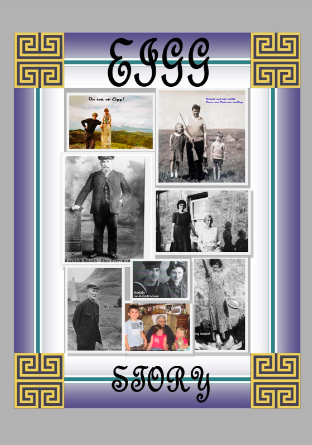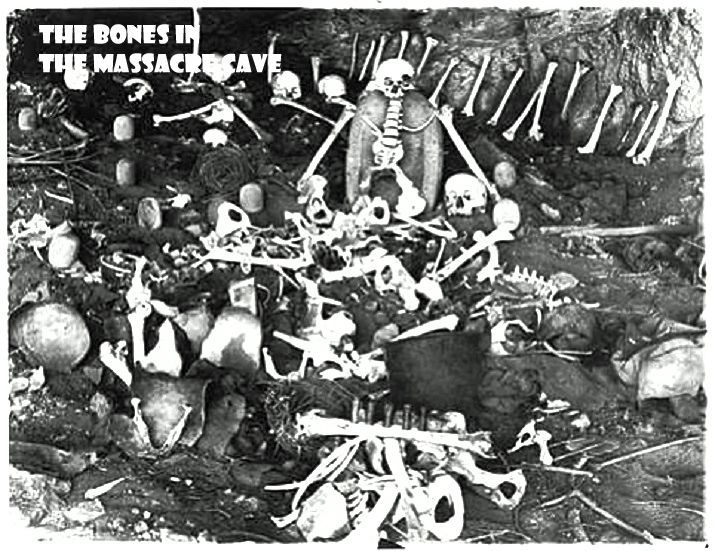In this post, I will discuss members of our family who have served in the World War I, Hector and John.
The MacGillivarys weren’t from Eigg, but Hector MacGillivray was the husband of an Eiggach, Morag Campbell, my grandmother. So I will include him in this account, as well as his brothers, Alexander and John. My Great-Great Aunt Ann lived together with my grandfather, Hector MacGillivray, at Woodend Cottage in Acharacle.
Around 1910, she would walk 3 or more miles to school every day over the hills come rain or shine to teach at Ardtoe School; and also mentioned elsewhere, if she looked out the school window, she would see the silhouette of Eigg’s An Sgurr volcanic rock in the distance. The point I’m trying to make here is that although this book is about ‘Eigg’, it would seem rather false not to include the tentacles that reach out from the island to the mainland and neighbouring islands.
People living on Eigg obviously had connections to the mainland and the neighbouring islands. For example, my great-grandmother, Morag MacKinnon’s family, originated from the Isle of Muck. My grandmother, Morag Campbell, met her husband-to-be in Oban, perhaps some thirty miles away as the crow flies. Moreover, the MacKinnons are said to be descended from Ireland. In a wider perspective, Eigg’s most ‘famous person’, St. Donnan, is also descended from Ireland. To sum up, although this book is about ‘Eigg’, it seems somewhat non-productive to erect imaginary impenetrable walls around our field of study.
I will first discuss, Hector, and then his two brothers, Alexander and John.
Hector MacGillivray
According to my mother, he never visited Eigg, while his wife and children visited Eigg every summer for six week periods. But he would sometimes accompany them on the journey to Eigg, but stop off at his home village of Acharacle.
My mother, Rhoda Campbell Harkness (nee MacGillivray), wanted me to write a ‘family history’. Or rather, I ‘foolishly’ volunteered to do it. (See: Promises to My Mother). I thought it was something I could do on a spare weekend, when I had nothing else better to do. I can’t remember the exact date when I started writing the “Eigg book”; it must have been sometime in the 1990s. In other words, around a quarter-of-a-century ago (as of 2024).
I can even remember showing her some of the ScotlandsPeople documents I had downloaded from the website. These were various birth, marriage and deaths certificates of the extended family. I had spread them out on the carpet in front of the fireplace in her home, at 6 Fitzjohn Close, Merrow Park, Guildford, around about 2003 or 2004. At the time, other family members were also present.
Well, to cut to the chase, my mother Rhoda, then over 80 years old, didn’t have a clue about what I was trying to show her. Moreover, she had been very busy tidying up the house, getting it ready for visitors, and had been energetically vacuuming the carpet. This had proven to be too much for her. As I tried to explain one of the certificates to her, her face suddenly became ‘glazed over’. She simply sat motionless in the armchair.
It was only later that I/we realized she must have had some kind of ‘mini-stroke’; we didn’t call a doctor, but she just needed to rest. In other words, I had taken way too long to finish the ‘family history’. Today, almost 15 years after her death, I am still not finished. I need to ‘get my finger out’, ‘pull up my socks’ and ‘get my act together’!
The point I have been struggling to make here is that although my mother wanted me to write a ‘family history’, she seemed to have limited knowledge about her own parents, grandparents, and ancestors. More specifically, she seemed to know next to nothing about her own father, Hector MacGillivray, especially his war service!
Email from my cousin Dawn Driscoll about our ancestors
I received an email from my cousin, Dawn Driscoll, daughter of Donald MacGillivray (my uncle). She talks about the war service, in World War I, of our grandfather, Hector MacGillivray. He was my namesake, as Hector is my middle name. I can remember my mother becoming exasperated on one occasion, when I asked her as a young boy why my middle name was Hector. “Don’t you even know that! Your grandfather was called Hector!”
Of course, I never met Hector, he died when I was two years’ old. My mother never talked about him, except in deprecating terms; so it is hardly surprising that this was something I didn’t know! I should add here that my mother never ever mentioned any of the details about Hector’s war service that Dawn sent me. I get the impression that Hector MacGillivray was an unassuming and humble man who didn’t boast about his exploits in World War I. Below, I inserted an extract from Dawn’s email here without doing further research.
“Did you know our grandad, Hector, was also heavily involved in WWI ? Did your Mum know? My dad never mentioned it, although he did say his dad was with the King’s Own Scottish Borderers Regiment.
I only found out about his war involvement, when I was searching for any information about him. I found ‘Medal Index Cards’ on the family tree site I use.
There were three Hector MacGillivrays – but one listed the ‘Corps.’ as I/KO.Sc.Bor. – so I hoped that was him. It gave his rank as ‘Pte.’ and his Regt no. 19026. He got 3 medals: the Victory, the British and the 15 Star.
Date of Entry: 6-6-15
Demob: 22-9-19.
Theatre of War first served in: (2B) Balkans.
When I checked out that code, 2B, it was at Gallipoli. I also found out his regiment {1st Battalion) went from Gallipoli to the Western Front, featured in the Battle of the Somme, Battle of Ypres, Battle of Lys and Battle of Cambrai. After finding this out, I phoned Auntie Vi (in Feb 2018). She had never heard about this and didn’t believe it. Anyway, she knew she had some paperwork and sent it to me.
The paperwork confirmed that it was him! The regiment no. of 19026 matched. Apparently he was the Regimental Cook!
Special Remarks on his Certificate of Employment say “Has acted as cook for the Company from August 1915 to January 1919, during which time he has become a very good cook and has several times acted ……. ”
Unfortunately, the rest is illegible, but I imagine he must have been involved in combat as well.
Perhaps, being a cook, was the reason he was lucky enough to survive and get back home. I don’t suppose Grandad would have known his brother, Alexander, was killed in France, until he got back home from the war.
Speak soon,
Dawn
As mentioned elsewhere, a 1911 census shows that Hector was a barman in Oban. Dawn also mentions in an email that Aunt Violet had told her that Hector had met Morag (my grandparents) in Oban. However, the story gets vague here. My mother believed that Roderick Campbell, her grandfather was born in Oban, but ScotlandsPeople does not confirm this. But it is highly probable that he had relations in Oban.
Moreover, his wife Morag MacKinnon probably also had relations in Oban. So my grandmother, Morag Campbell, may have travelled to Oban to visit relations, or find work before she moved to Glasgow. Apart from these considerations, Oban has a sizeable population compared to Eigg and Acharacle. It must have offered employment possibilities, while not being that far away.
Another interesting point is that World War I ended on November 11, 1918, but that he stayed on for 2-4 months after the end of the war. He was de-mobbed in January/March 1919, but this was perhaps not that uncommon.
Hector MacGillivray’s medals from World War One
| The Victory Medal | The British War Medal | The 15 Star medal | |
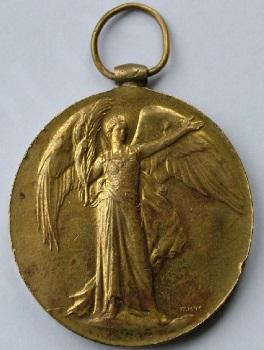 | 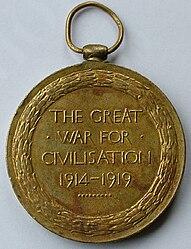 | 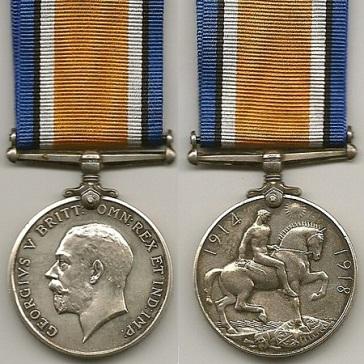 | 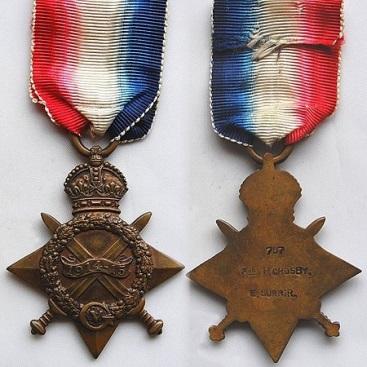 |
| The Victory Medal (also called the Inter-Allied Victory Medal) is a United Kingdom and British Empire First World War campaign medal. The award of a common allied campaign medal was recommended by an inter-allied committee in March 1919. Each allied nation would design a ‘Victory Medal’ for award to their own nationals, all issues having certain common features, including a winged figure of victory on the obverse and the same ribbon. Fourteen countries finally awarded the medal. | The British War Medal is a campaign medal of the United Kingdom which was awarded to officers and men and women of British and Imperial forces for service in the First World War. Two versions of the medal were produced. About 6.5 million were struck in silver and 110,000 in bronze, the latter awarded to, among others, the Chinese, Maltese and Indian Labour Corps. | The 1914–15 Star is a campaign medal of the British Empire which was awarded to officers and men of British and Imperial forces who served in any theatre of the First World War against the Central European Powers during 1914 and 1915. The medal was never awarded singly and recipients also received the British War Medal and Victory Medal. | |
Hector MacGillivray’s military documents
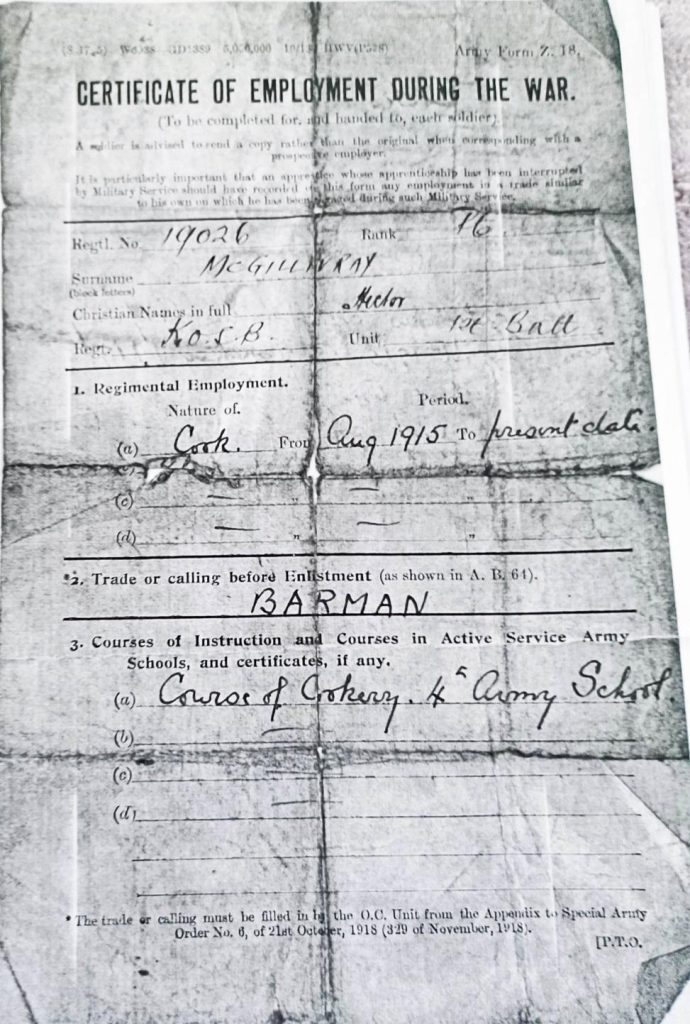
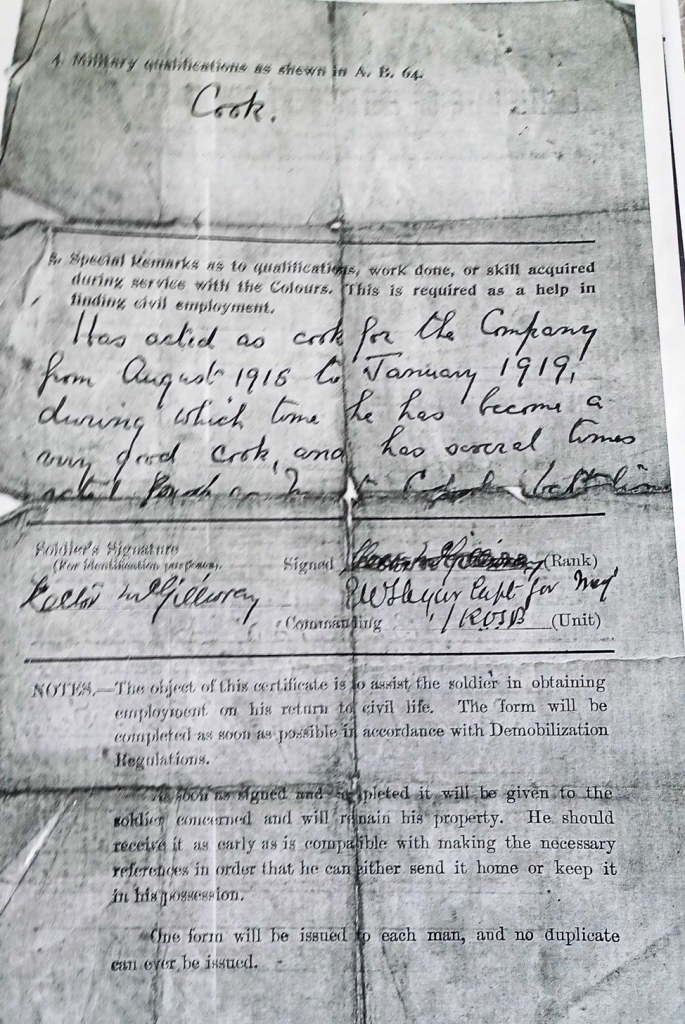
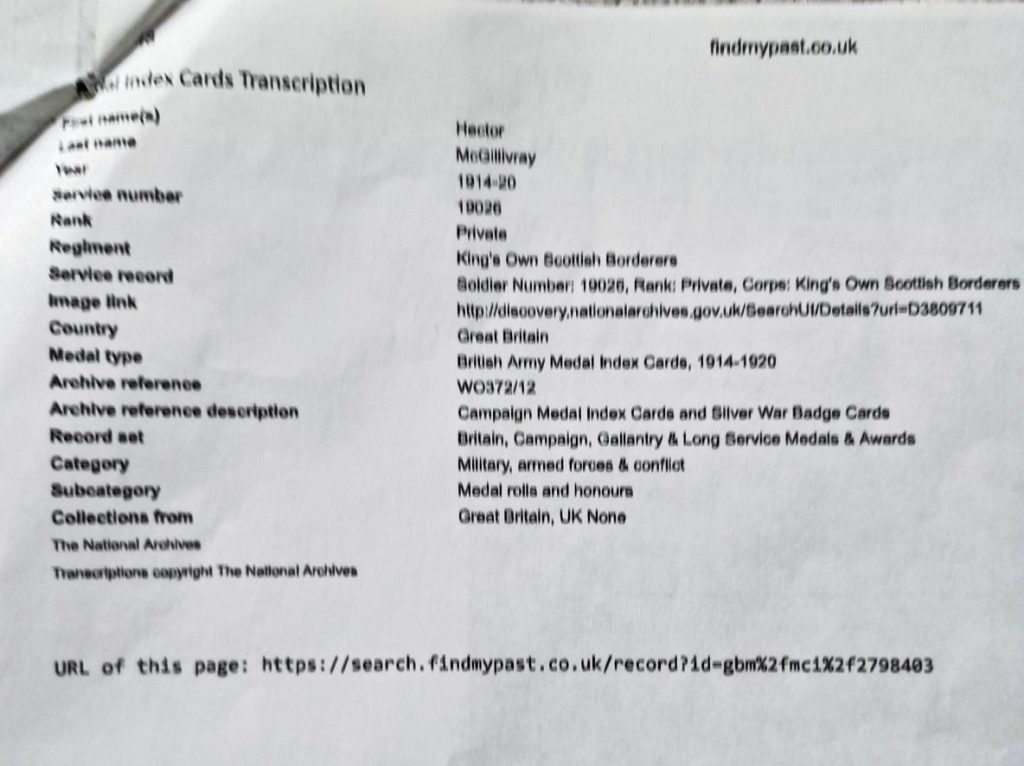
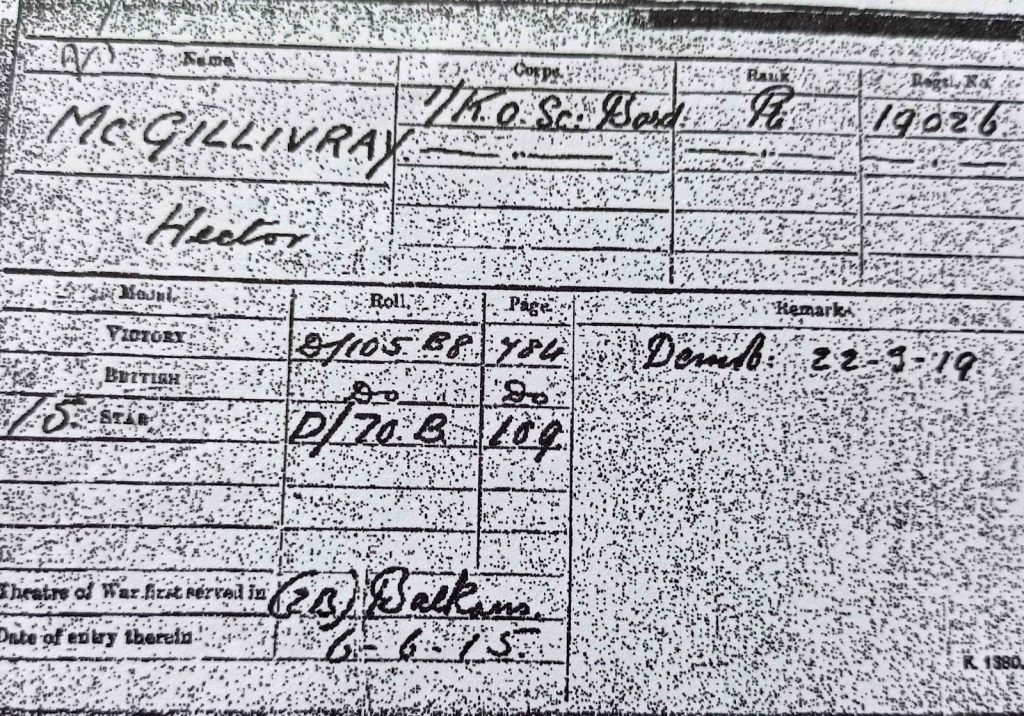
The Battles of World War One
It seems quite fantastic that my grandfather was involved in some of the major battles of World War I, without my mother or anyone else ever mentioning this, or having any documents pertaining to his military service. Dawn writes in her email that he was involved in the following battles: Gallipoli, the Western Front, the Battle of the Somme, the Battle of Ypres, the Battle of Lys and the Battle of Cambrai.
In the following , I will refer to other members of the extended family who have served in the world wars.
John MacGillivray – Piper
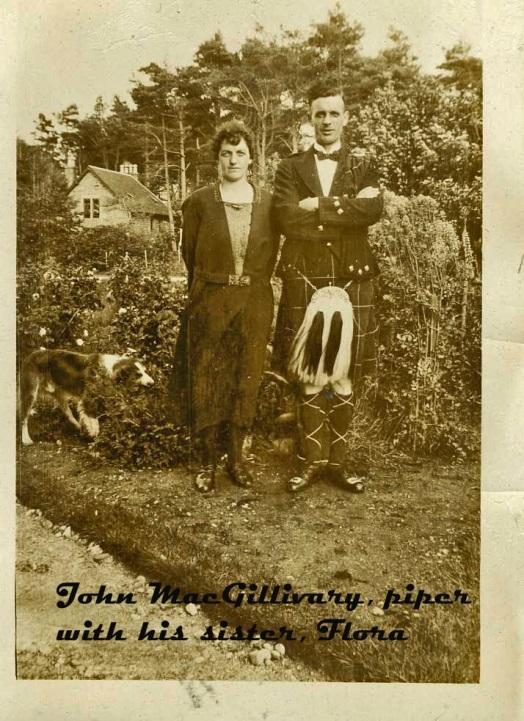
My second cousin, Ted Moyes, (great grandson of John MacGillivray) has sent much interesting information about the MacGillivrays, and their military service during World War I. As mentioned above, he sent me information about our great uncle, Alexander MacGillivray. He also sent me information about another piper, John MacGillivary, Alexander’s brother. He is in the photo of the family photo of the MacGillivrays shown above, taken around 1900, when he was about 7 years old.
From what I can gather from the documents it seems John MacGillivray was in regiment 332318- 9th Highland Light Cavalry. He was awarded the Victory and British medals.
John MacGillivary’s military documents
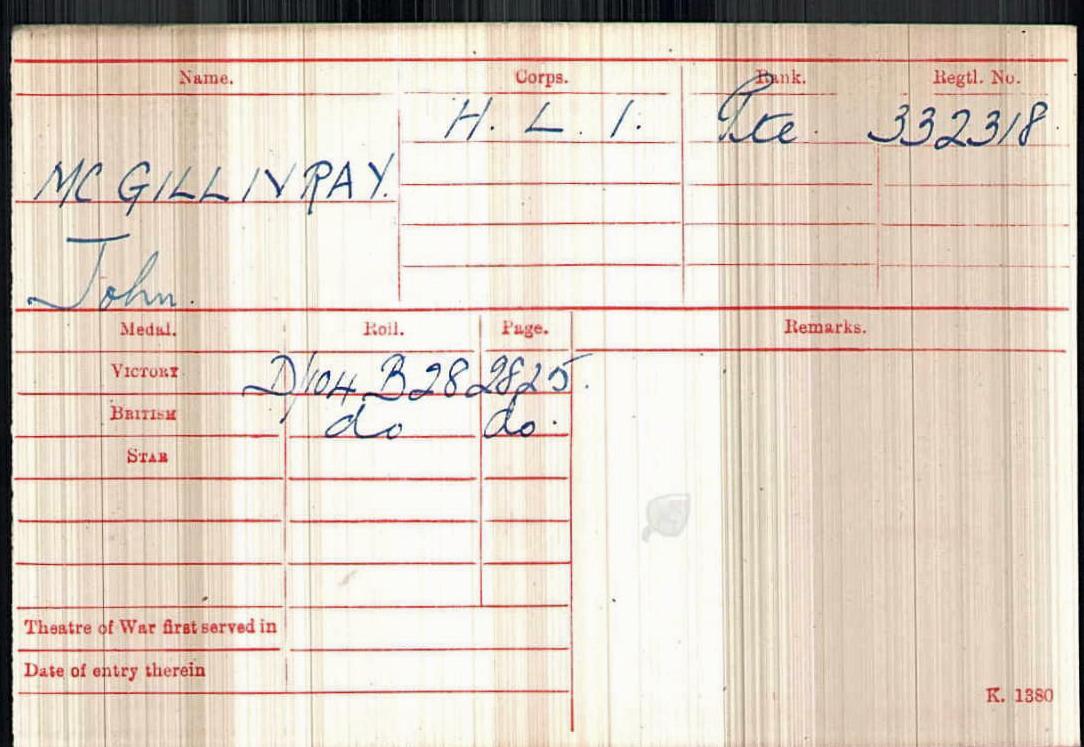 |
 |
 |
I haven’t examined the military documents in detail. However, they confirm his regiment number, and the fact that he was awarded the British and Victory medals. Another interesting point is that he is staying with my grandparents (Hector MacGillivary and Morag MacGillivray, nee Campbell) at 81 Plantation Street in Glasgow in 1919. This is where my mother, Rhoda Campbell Harkness (nee MacGillivary), was born in 1921.
This suggests that the family still had quite close connections. Hector and Morag were married in 1918. Hector worked as a spirit salesman most of his life in Macmillan’s Bar in Vulcan Street. According to a 1911 census, he worked as a barman in Oban, so it seems this was a trade he did all his life. In fact, my Auntie Violet, who is about 90, still lives in the area (Bishop Briggs). The fact that he was a barman in 1911, probably enabled him to work as a cook in World War I (see above).
